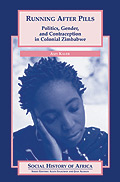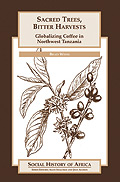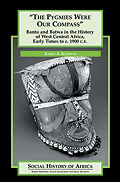The Social History of Africa Series
Kaler examines how "modern" contraceptive technologies, such as the pill and the Deop-Provera injection, were embroiled in gender and generation conflicts, and in the national liberation struggle, in Zimbabwe during the 1960s and 1970s. Based on extensive oral and archival research, the book shows the ways in which fertility and control over reproduction within marriage and the family influenced the development of the "imagined community"... more
Weiss explores the dynamic relation of specific local, regional, and global understandings of value as manifested in the coffee of rural Haya communities. His investigation offers critical insight into the significance of colonial and postcolonial encounters in this region of Africa.... more
Covering more than 2,000 years this important region's history, this book is a groundbreaking contribution to the knowledge of pre-colonial Africa. It is the first historical work to reconstruct a Batwa or "Pygmy" past, thereby questioning Western epistemologies that have long portrayed the Batwa as a quintessential people without history.... more
Confessional literature is a particularly appropriate mode of literary discourse for a society struggling to carve out a new national identity based not on race, but on a shared sense of geographic space and egalitarian and democratic values. Emerging from the Christian tradition of acknowledgment and testimony, and influenced by the complexities of South African religious history, the confessional mode in South African literature appears in... more





